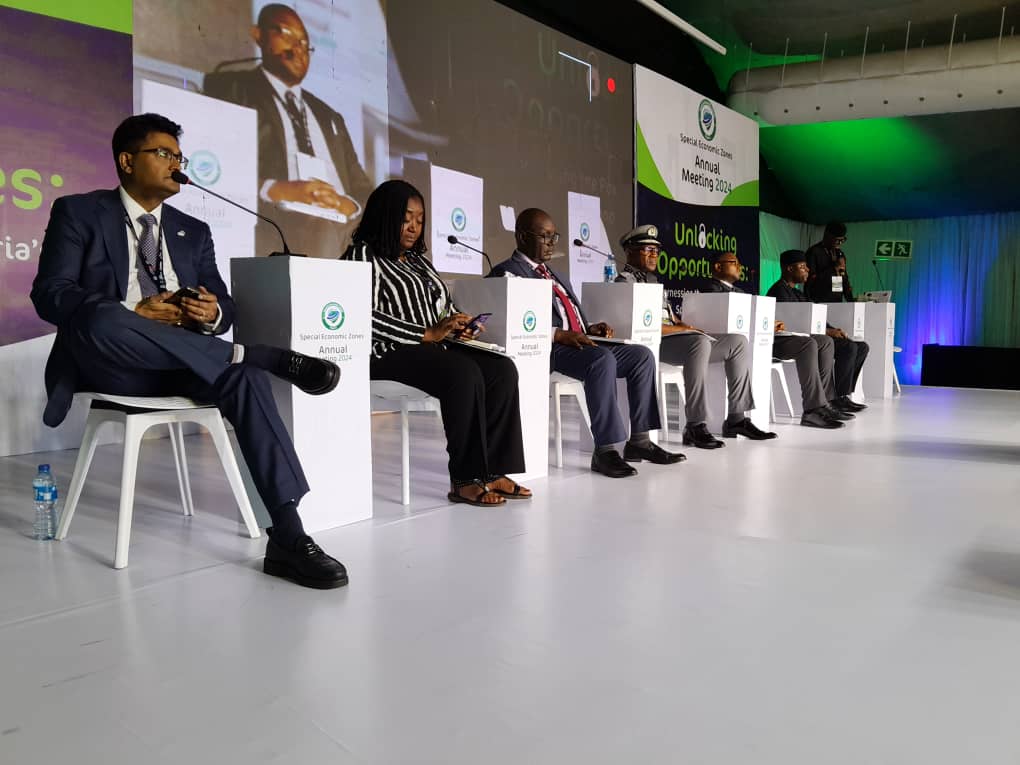The Special Economic Zones Scheme has emerged as a powerhouse in Nigeria, attracting over $66 billion in Foreign Direct Investments, FDIs and N620 billion of Domestic Direct Investments, DDIs.

The Chairman of Nigeria Economic Zones Association, Chief Nabil Saleh, who disclosed this today, at the Special Economic Zones Annual General Meeting 2023, noted that these investments have led to the creation of 35,000 direct and indirect employment, driving socio-economic development in the country.
Giving sectoral breakdown, he said the Manufacturing sector takes the lead, commanding 45% of the total investments, closely followed by the Services sector at 30%. The Oil and Gas sector accounts for 11% of investments while the Trading, Logistics, and Agriculture sectors also made significant contributions.
He noted that SEZs, with their unique regulatory incentives and business-friendly environments, have emerged as powerful engines of economic growth and development.
He added that the establishment of SEZs in Nigeria has led to the development of Africa’s biggest oil refinery, a Deep-Sea Port with the capacity to handle around 6 million twenty-foot equivalent units (TEUs) of containers, an ambitious Gas Processing Hub along the Atlantic Coast and an Oil and Gas Downstream Manufacturing Hub, among others.
“The success stories of countries with well-established SEZ schemes underscore the transformative potential of these zones. Nations such as China, Singapore, and the United Arab Emirates have harnessed the power of SEZs to attract foreign direct investment, drive industrialization, and foster innovation. In these countries, SEZs have become beacons of economic progress, contributing significantly to their GDP and job creation”, he said.
He noted that the theme of the AGM, “Unlocking Opportunities: Harnessing the Power of Nigeria’s Special Economic Zones Scheme”, encapsulates the essence of its mission—to tap into the immense potential that the economic zones hold for the growth and development of Nigeria.
The Managing Director of Nigeria Export Processing Zones Authority, NEPZA, Dr. Olufemi Ogunyemi, said that the two-day event will serve as an opportunity to gain in-depth understanding of the challenges faced by operators in the various Free Zones and how these challenges can be addressed head-on and thereafter chart a way forward to ensure that the scheme continues to serve as a tool for economic growth and sustainability
He argued that it has become imperative that SEZs be re-engineered, bearing in mind the unfolding of the fourth industrial revolution, the heightened focus on sustainable development, and the new wave of global value chains
“Accordingly, it is envisaged that the interactive sessions will provide an opportunity for stakeholders to discuss critical issues in more detail as it concerns Standardizing Free Zones Operations; Tax Administration in the Free Zones; Sharing Experiences on Free Zone Policies and Operations, and develop actionable solutions.
“With the advent of global, continental, and regional economic realities, it is envisaged that outcomes from this two day event will therefore serve as critical inputs to be adopted by SEZs regulators and other key stakeholders, and Nigeria as we all aspire to chart a new course,” he said.
On his part, the Managing Director of Oil and Gas Free Zones Authority, OGFZA, Alhaji Bamanga Jada noted that SEZs is globally recognized as the most important instrument that is used by policy makers to facilitate, attract and scale-up long-term domestic and cross border investments as well as to promote and enhance industrialization, export-oriented investment, diversification, job creation and many more in most fast- growing economy around the world.
He stressed that despite challenges that confront operators and licensees, the Oil and Gas Free Zones Authority has been able to attract $24bn investment and has more than one hundred licensed companies in the free zones under the Authority’s regulation.
In his goodwill message, the governor of the Central Bank of Nigeria, CBN, Dr. Olayemi Cardoso, while acknowledging the successes of SEZs in Nigeria, called for a collaborative approach that would engage both the public and private sectors to provide a more coherent and consistent operational environment in ameliorating the challenges faced by stakeholders in the scheme.
The challenges, he noted, are constraints in areas of regulatory complexities, infrastructure deficits and inadequate access to finance amongst others.
Send your press invite, news, press releases/articles to augustinenwadinamuo@yahoo.com. Also, follow us on Twitter @PrimetimeRepor1 and on Facebook on facebook.com/primetimereporters or call the editor on 07030661526.
